Whale of a Mess: Beluga Dies, Another Falls Ill at Mystic Aquarium
August 27, 2021
MYSTIC, Conn. — It was a plan with worthy objectives: Remove five beluga whales from a crowded, substandard facility in Ontario, Canada, and bring them to Mystic Aquarium where they would have more space. The whales would be part of Mystic’s ongoing research program, the goal of which is to better understand the charismatic and endangered white whales and possibly help improve the survival of wild populations.
It hasn’t worked out that way. One of the Canadian whales, a male, died a few months after arriving in Mystic and now a second animal, a female, is, according to a recent aquarium social media post, “extremely ill and failing.”
These unfortunate developments have prompted questions about the health of the whales before they were transported, the stress of being moved and whether officials in the United States and Canada should have allowed the transfer in the first place.
Permits issued
After lengthy hearings, which included numerous objections from animal welfare groups and marine mammal scientists in both countries, the National Oceanic and Atmospheric Administrations (NOAA) approved the permit to import five belugas for research. But even before the whales left Canada’s Marineland, Katherine Brogan, acting director of public affairs for NOAA Fisheries, said Mystic Aquarium asked to substitute different whales for three of the five original belugas, because they were reported to be in ill health.
“On December 23, 2020, NOAA Fisheries approved Mystic Aquarium’s request to substitute three of the whales due to health concerns and approved their breeding prevention plan,” she wrote in email.
The transaction also required an export permit from Fisheries and Oceans Canada. Department spokesperson Barre Campbell said before issuing the permits her agency had received assurances that all the whales were healthy.
“Regarding the health of the animals, Fisheries and Oceans Canada received an attestation of good health made by professional veterinarians for each of the five animals before issuing Fisheries Act permits for their recent move to the US,” Campbell wrote in email.
The whales were transported to Connecticut in mid-May. A few months later, on Aug. 6, the aquarium announced that Havok, a male, had died from a “preexisting condition.”
Brogan said the aquarium was required to submit a report, including a necropsy, to NOAA. The agency has received the report but has not released any information regarding its contents.
“Following a mortality, the permit requires Mystic Aquarium to submit an incident report to NOAA Fisheries that includes a complete description of the events, identification of steps that will be taken to reduce the potential for additional mortalities, and reports related to the cause of death including the necropsy report, histopathology, and any other relevant reports,” she wrote. “NOAA Fisheries received and is reviewing the incident report and a preliminary necropsy report. The cause of death has not yet been determined.”
Naomi Rose, a marine mammal scientist with the Washington, D.C.-based advocacy group the Animal Welfare Institute, was among the experts who testified against the transfer of the whales to Connecticut. Rose said she understood that Havok, who was one of the whales chosen by Mystic Aquarium to substitute for another ailing whale, was suffering from gastric ulcers even before he left Canada.
“The animal apparently had this preexisting condition of gastric ulcers,” she said. “Ulcers are exacerbated by stress. This is not something that should have happened.”
Rose called on the American and Canadian agencies responsible for approving the transfer to conduct a thorough investigation.
“We definitely want the agencies to look closer than they normally would look,” she said. “This animal should not have been transported in the first place. … There were three whales that they substituted three other whales for, because the three original whales were too sick. They were too ill. One had a communicable condition, so of course, that whale couldn’t come in, and the other two had conditions that made them too fragile to transport. Well, one of those conditions, amongst other things, was gastric ulcers, so they replaced one whale with gastric ulcers with another whale with gastric ulcers.”
Mystic Aquarium spokesperson Daniel Pesquera said in an Aug. 25 interview that the female Canadian beluga currently undergoing intensive veterinary care was suffering from a low white blood cell count but also, like the deceased male, gastric ulcers.
“The white blood cell count in particular is probably the most concerning condition that’s developed,” he said. “It’s low. That, in combination with some gastrointestinal issues that have essentially developed — essentially a gastric ulcer situation. So that, in combination with the low white blood cell count, has the veterinary team very concerned about this whale’s condition.”
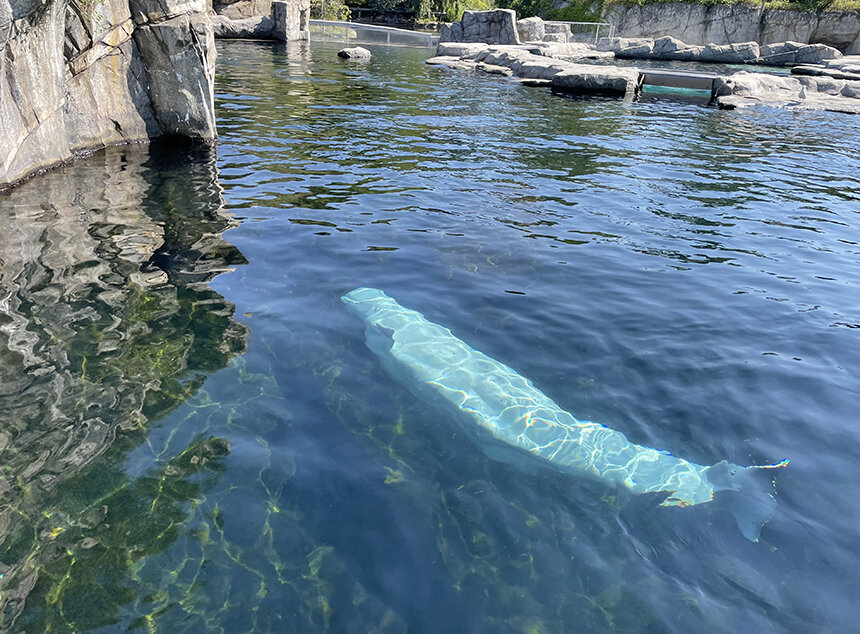
Marineland: A “puppy mill of belugas”
In 2019, Canada passed the Ending the Captivity of Whales and Dolphins Act, which prohibits the display of whales and dolphins. The permits to transfer belugas from Marineland to Mystic Aquarium were granted with several conditions: the whales would be used for research; they would not be used in performances or interactive programs with aquarium guests; and they would not be permitted to breed.
Marineland is one of just two aquariums in Canada that continue to exhibit whales and dolphins. The facility is permitted to keep them but prohibited from acquiring new animals or allowing the resident animals to breed.
Overcrowding and poor conditions at Marineland likely factored into the decision to grant the export and import permits. The facility has bred a shocking number of belugas — more than 50 animals. Marineland is also infamous for housing a solitary, depressed orca named Kiska, and activists fear for the health of a walrus there named Smooshi.
“They have more than anybody else in the world,” Rose said of the Marineland facility. “It’s just a puppy mill of belugas.”
In an affidavit submitted during the permitting process, Marineland of Canada president Marie Holer wrote that the animal care committee, a group of experts established to oversee the aquarium, has recommended that in addition to preventing further breeding, the aquarium “increase available space for the existing Beluga Whales through the reduction of the Beluga Whale population at Marineland … through partnerships with appropriate institutions, such as the Mystic Aquarium, further research, conservation and education efforts in relation to the Beluga Whale.”
Kaitlyn Mitchell, an attorney at the Canadian animal legal advocacy group Animal Justice, said Fisheries and Oceans Canada had been secretive regarding the details of the export permitting process. In an Aug. 13 letter to Fisheries and Oceans minister Bernadette Jordan, Mitchell called on the Canadian government to investigate the death of the male beluga, whether he was ill before being transported and ongoing conditions at Marineland that would cause such an illness.
“On May 10, 2021, Ontario’s animal welfare services found that all marine mammals at Marineland were in distress due to poor water quality, and ordered Marineland to repair the implicated water systems,” Mitchell wrote in the letter. “Heartbreaking footage of Kiska — Marineland’s sole orca, who has lived in her small tank alone since 2011 — has caused renewed public outcry over her treatment and a flood of calls from the public for authorities to investigate her treatment. Many of these problems have been reported to Ontario’s animal welfare services agency but it is clear that more must be done.”
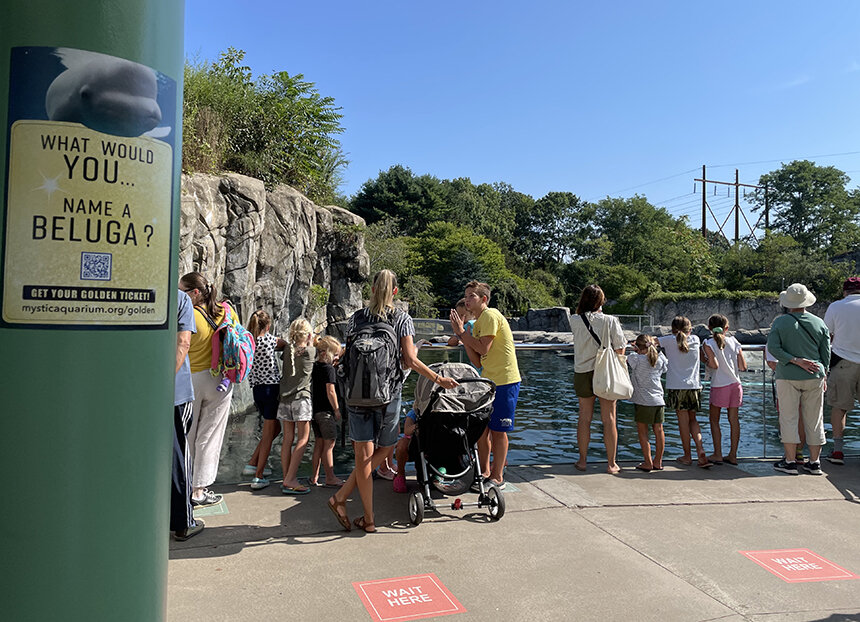
Whales are expensive
Mystic Aquarium has not revealed how much it paid to import the five whales, but it is holding fundraisers to offset that cost.
A $150-per-ticket auction on Aug. 19, conducted by the prestigious New York City-based auction house Guernsey’s, offered patrons the opportunity to bid on a chance to name one of the aquarium’s new whales.
Publicity for the auction, which included a selection of luxury items in addition to beluga-naming rights, described the acquisition of the Marineland whales as a “rescue.”
“An unprecedented auction is taking place to help Connecticut’s Mystic Aquarium fund its recent efforts to rescue five endangered Beluga Whales,” according to the Guernsey’s invitation. “Among the fascinating lots being offered are the naming rights for three of the Belugas.”
Other items available at the auction included trips to the Maldives and Australia, a Super Bowl package, cars and a week at the Masters. The auction raised $3.5 million.
There is also an ongoing promotion encouraging aquarium guests to enter a raffle to name the fourth surviving whale.
The financial health of the aquarium and the nonprofit Sea Research Foundation, which owns the facility, have come under scrutiny since the whale transfer was announced. A report conducted by the economic consulting firm ECONorthwest on behalf of the International Marine Mammal Project (IMMP) of California examined the financial health of the aquarium. The report casts doubt on the facility’s financial stability — one of the conditions of NOAA’s import permit.
“In the case of the Mystic Aquarium’s proposal to import five beluga whales, the financial capability of the applicant to do so at the time of its application in October 2019 was seriously at question,” according to the IMMP. “Since that time, Mystic’s ability to meet any reasonable test of financial prudence for such a program has been called even more into question as a result of the COVID-19 pandemic.”
The IMMP noted Mystic Aquarium has had to restructure its long-term debt at least three times since 1970.
While Mystic Aquarium is Connecticut’s largest tourist attraction after the casinos, management salaries and benefits packages at the nonprofit have raised questions.
According to the 2019 income tax filing, the most recent year available, Sea Research Foundation president Stephen Coan was paid a salary of $414,280 and a bonus of $143,751 in a compensation package which, with other benefits, totaled $598,337.
Whales tales
The conditions of the import permit may preclude performances and public interactions, but the surviving Canadian whales are on display.
On a recent sweltering morning, visitors crowded near the beluga whale habitat, children squealing with excitement whenever a whale swam past. As belugas swam in circles around the tank, the ill female was receiving treatment in a special area.
As they wait to see whether the female beluga survives, marine mammal advocates on both sides of the border are stepping up their efforts to find out how sick whales were allowed to leave Canada.
The Animal Welfare Institute has submitted a Freedom of Information Act request for the Marineland whales’ health certificates before they were transported, and is calling for a multi-agency investigation.
“This situation is simply getting worse,” Rose said. “First Havok dies from a ‘preexisting condition;’ now a whale that Mystic said at the time of Havok’s death was in ‘good health’ is gravely ill. What is going on at Mystic? What is going on at Marineland? Both governments need to mount serious investigations into the health of the animals at these facilities.”
Rose also noted that while she believed Mystic Aquarium had, in the past, conducted valuable research, she is disappointed in how the facility has responded to recent events.
“I have respected Mystic’s research for years, but the way they have handled the import of these five whales is deeply disappointing,” she said. “Either they knew the health of these whales was not 100 percent, which violates their commitments to only transport healthy animals, or they were unaware of these preexisting conditions at the time of transfer, which suggests incompetence. How could they not know these whales were not fully healthy?
“Under no circumstances should any further imports take place — something is deeply wrong at Marineland and that needs to be resolved and the animals there stabilized.”

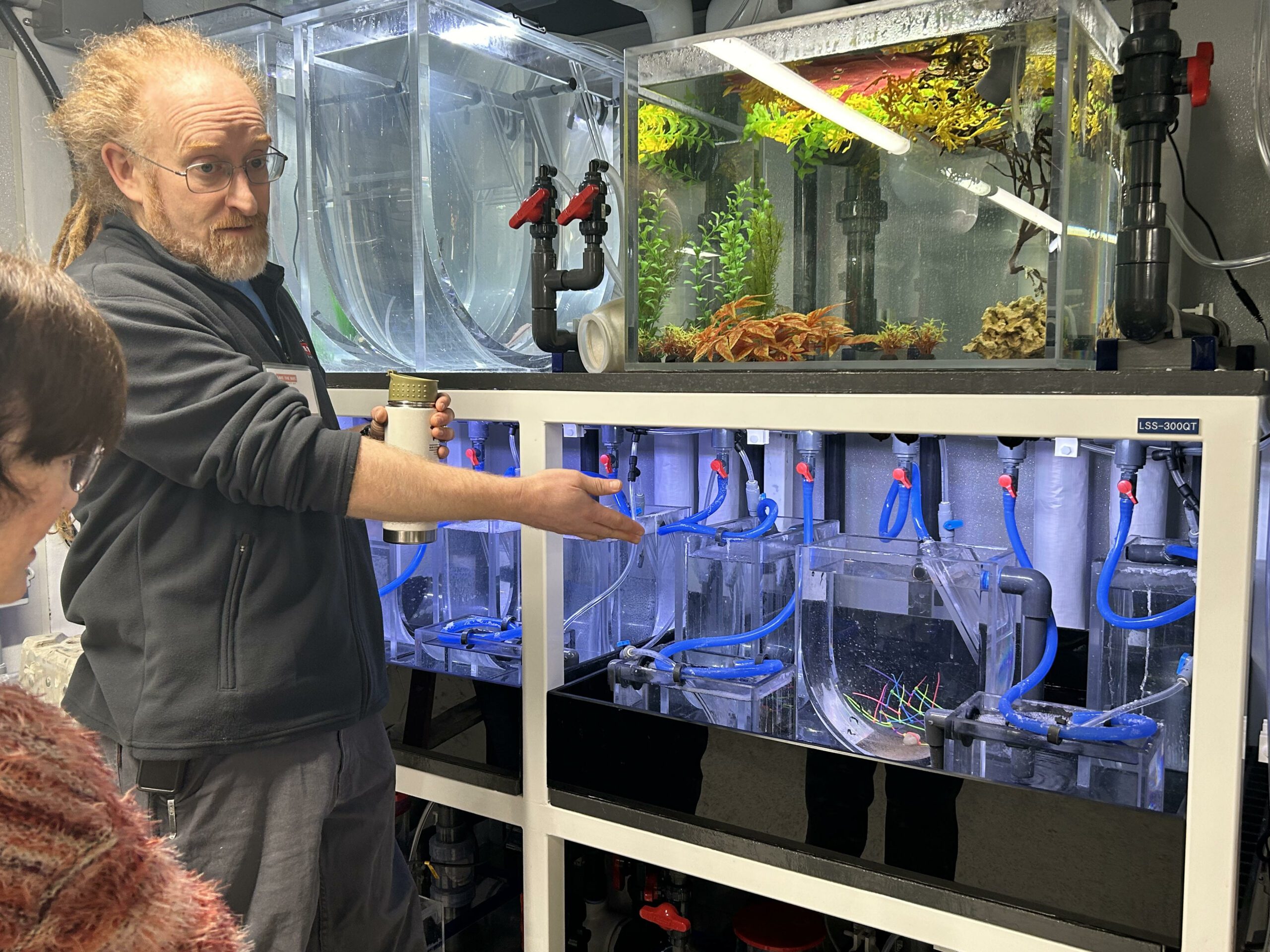
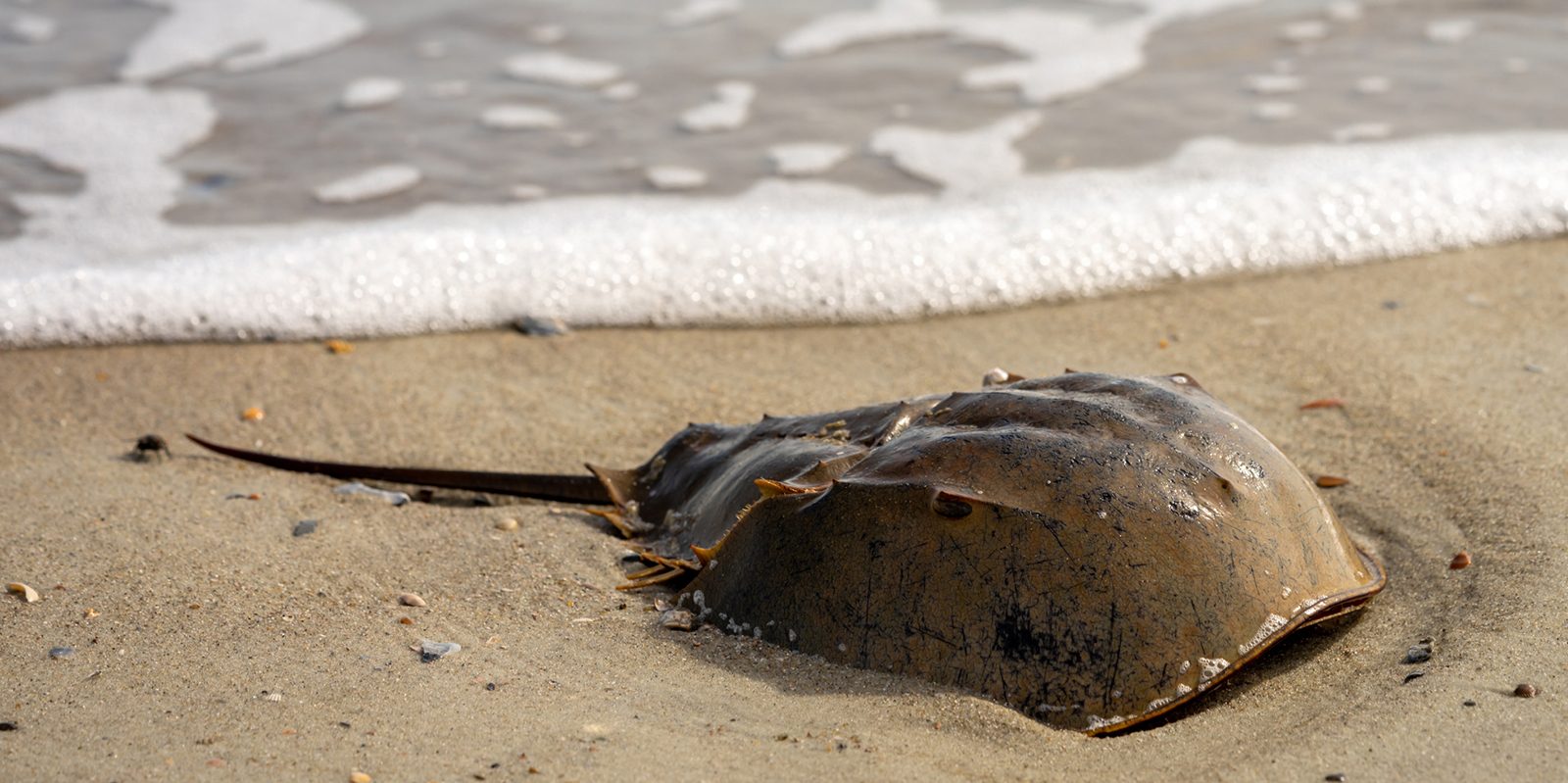
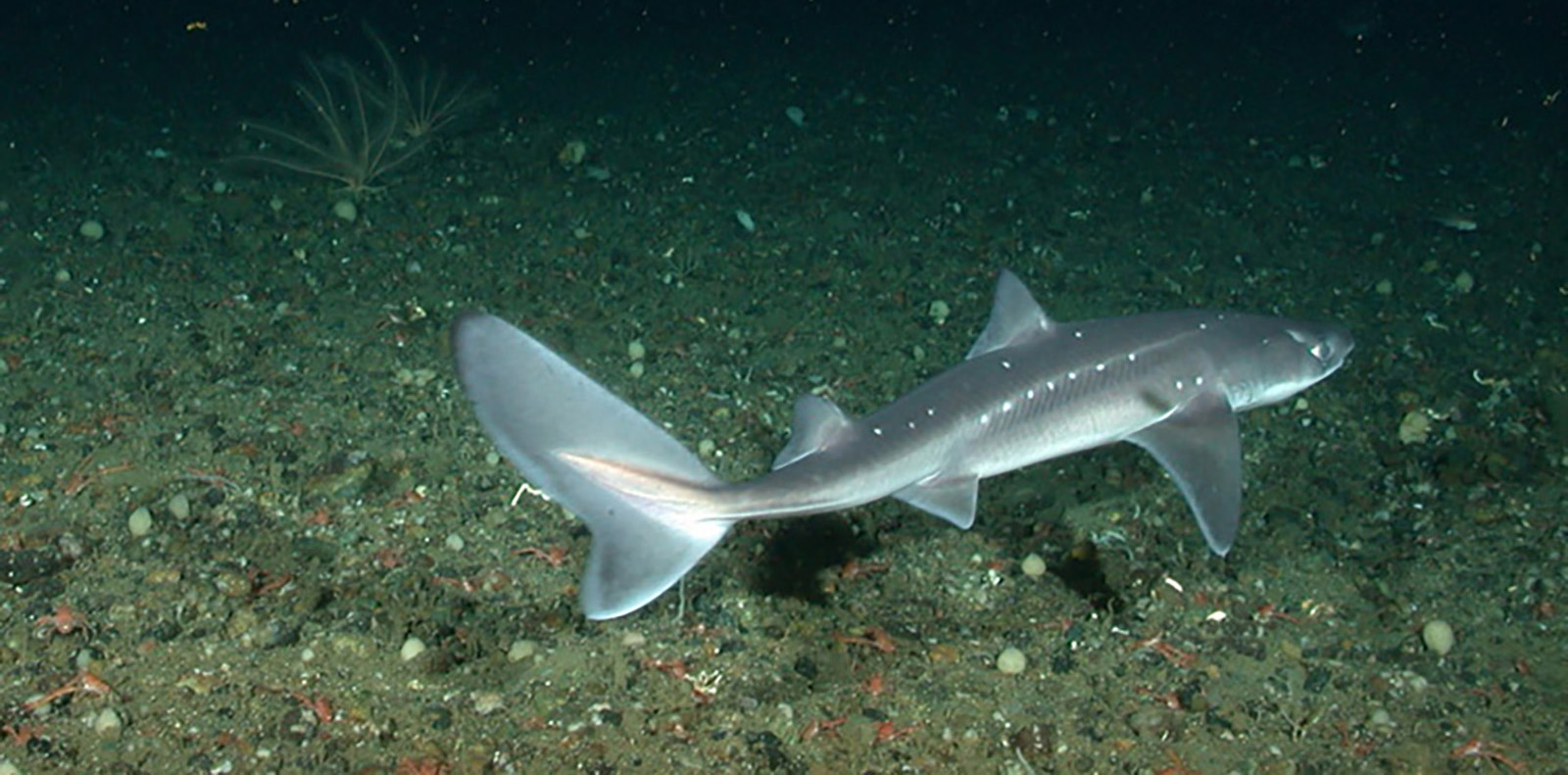
Thank you for calling attention to this issue. My heart breaks on a daily basis because of the suffering that humans cause non-human animals and the natural world. I’m so ashamed of my species. We’re arrogant thugs.